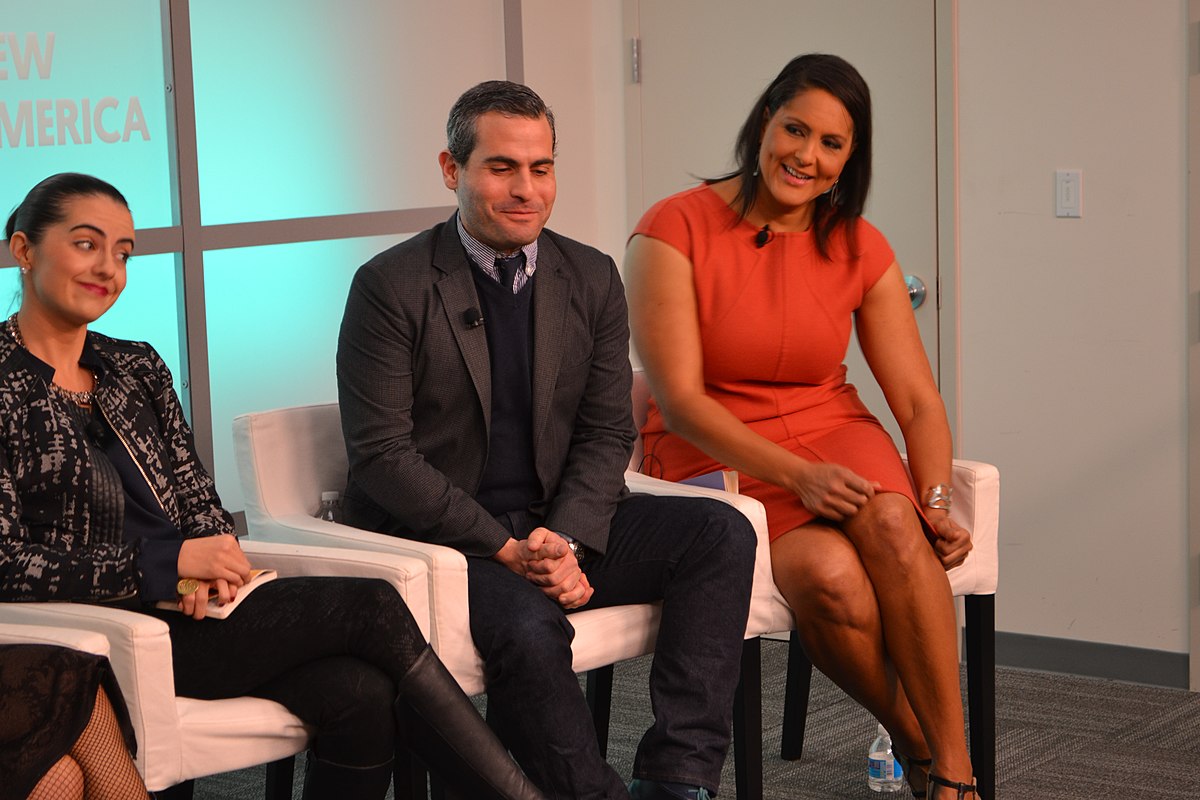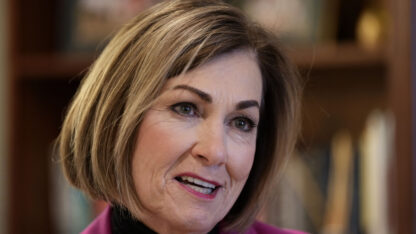This story was updated Wednesday, Oct. 25, at 8:40 p.m.
Democratic strategist and CNN contributor Karen Finney has spent decades working to secure reproductive rights and advance women in US politics.
On Thursday night, Oct. 19, while Rep. Jim Jordan, R-Ohio, was still trying to secure his bid to be speaker of the House, Finney sat down to talk with Melissa Harris-Perry, Maya Angelou presidential chair at Wake Forest University and founder of the Anna Julia Cooper Center.
“From the perspective of the public, they see us as less a part of Washington’s system,” Finney remarked as she responded to a question about the challenges and opportunities facing Black women running for elected office, “And in a moment when Americans are increasingly frustrated and suspicious of Institutions, that’s a real benefit for us.”
“This is the kind of insightful, counterintuitive analysis that has made Finney one of the most dynamic and influential Black women in American politics,” said Harris-Perry.
“Rather than seeing Black women candidates through a deficit model based on our relative lack of access to the back rooms of power, Finney articulated why that outsider status is beneficial in a moment when the dysfunction in those back rooms is so readily apparent.”
Finney went on to draw a stark contrast between the leadership crisis among House Republicans and the way the House operated under the leadership of former Speaker Nancy Pelosi.
“She also had a very thin margin, but she did her work. She didn’t just show up on the day of the vote in January and assume by the force of her will she was going to make it happen.” Finney observed, “She met with the people who were opposing her, she heard their concerns, she figured it out that’s and that is a hallmark of women’s leadership. We are good listeners.”
Thursday night’s conversation was the second in a five-part series titled “Sister Citizens: Conversations with Black Women in US Politics and Media,” hosted by Harris-Perry and presented by the Anna Julia Cooper Center. The web series features interviews on important topics with Black women elected officials and media makers ahead of the 2024 election.
During Thursday’s hour-long conversation between Finney and Harris-Perry, the two Black women, who each formerly hosted shows on MSNBC, discussed a wide range of topics. Finney shared insights gleaned from decades of working as a campaign strategist, political staffer and media professional.
Finney’s prior experience includes work on five presidential campaigns and two presidential administrations. She was the Democratic National Committee’s first African-American spokeswoman and served as senior spokesperson for Hillary Clinton’s 2016 presidential campaign and Senior Advisor to former Georgia gubernatorial candidate Stacey Abrams.
During their discussion, Finney explained the importance of electing women, especially Black women, to public office by highlighting the profound effect of public policy decisions.
She also discussed child poverty rates and the now-lapsed child tax credit.
“Child poverty, we now know, is a choice. It is not a moral failure. And how do we know that? Because under our COVID package, we reduced childhood poverty [nearly] in half. So, we know how to do it. We know it can be done,” said Finney, echoing Sen. Cory Booker, D-N.J.
Child poverty contributes to racial disparities in education, health, mortality, incarceration rates, and other life outcomes. In 2021, as the economy suffered from the COVID-19 pandemic, the expansion of the child tax credit led to a historic 46% decline in U.S. child poverty.
According to the Center on Poverty and Social Policy at Columbia University, the credit reached more than 60 million children and lifted 3.7 million children out of poverty in its final month.
However, the Republican-controlled House of Representatives allowed the tax credit to expire in 2021. Following its expiration, child poverty more than doubled in less than a year.
Finney discussed the importance of reproductive rights and of electing representatives who will restore and extend access to the full range of reproductive health alternatives for women.
Throughout the event, Finney answered questions from Wake Forest University students, and she expressed her enthusiasm for their involvement in the event and in American politics.
“I’m so proud of this generation of students in college.” Finney told Harris-Perry, “Because they’ve grown up just in a different environment, and I think it’s something when I look at my mother’s generation through our generation. Just how we as women and black women have had our own perception of who we are and what we can do.”
After brain surgery in 2021, Finney was left with a paralyzed left vocal chord, yet still, she has a lot to say.
She opened up about it in her discussion with Harris-Perry. The political consultant, strategist, and CNN contributor talked about her choice to return to delivering political commentary on air even while still in the process of recovery.
You can watch the full conversation between Karen Finney and Melissa Harris-Perry here. The series is a partnership between the Anna Julia Cooper Center, the Ms. Foundation for Women, and several units of Wake Forest University.
Editor’s Note: The Anna Julia Cooper Center and Ms. Foundation for Women contributed to this story.









